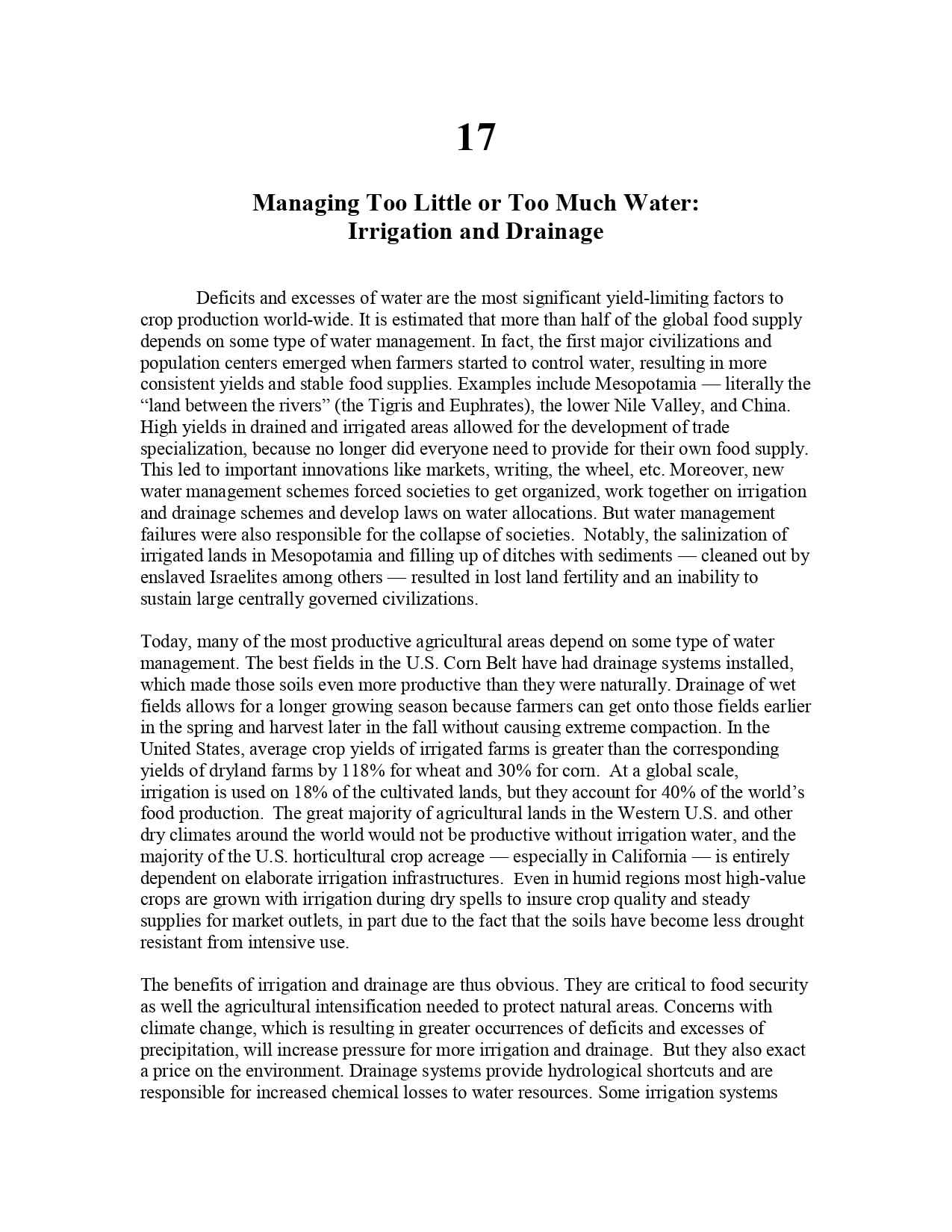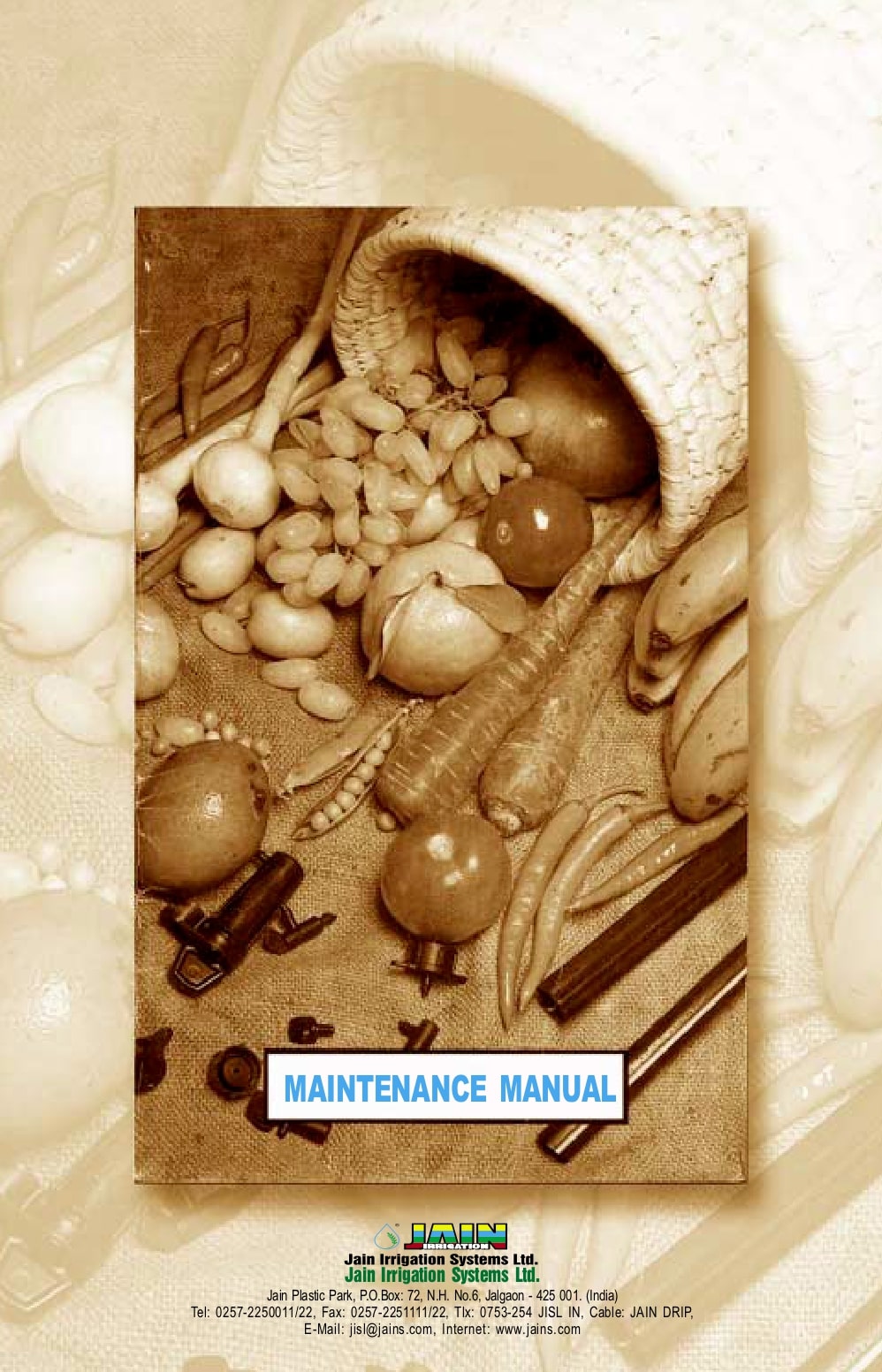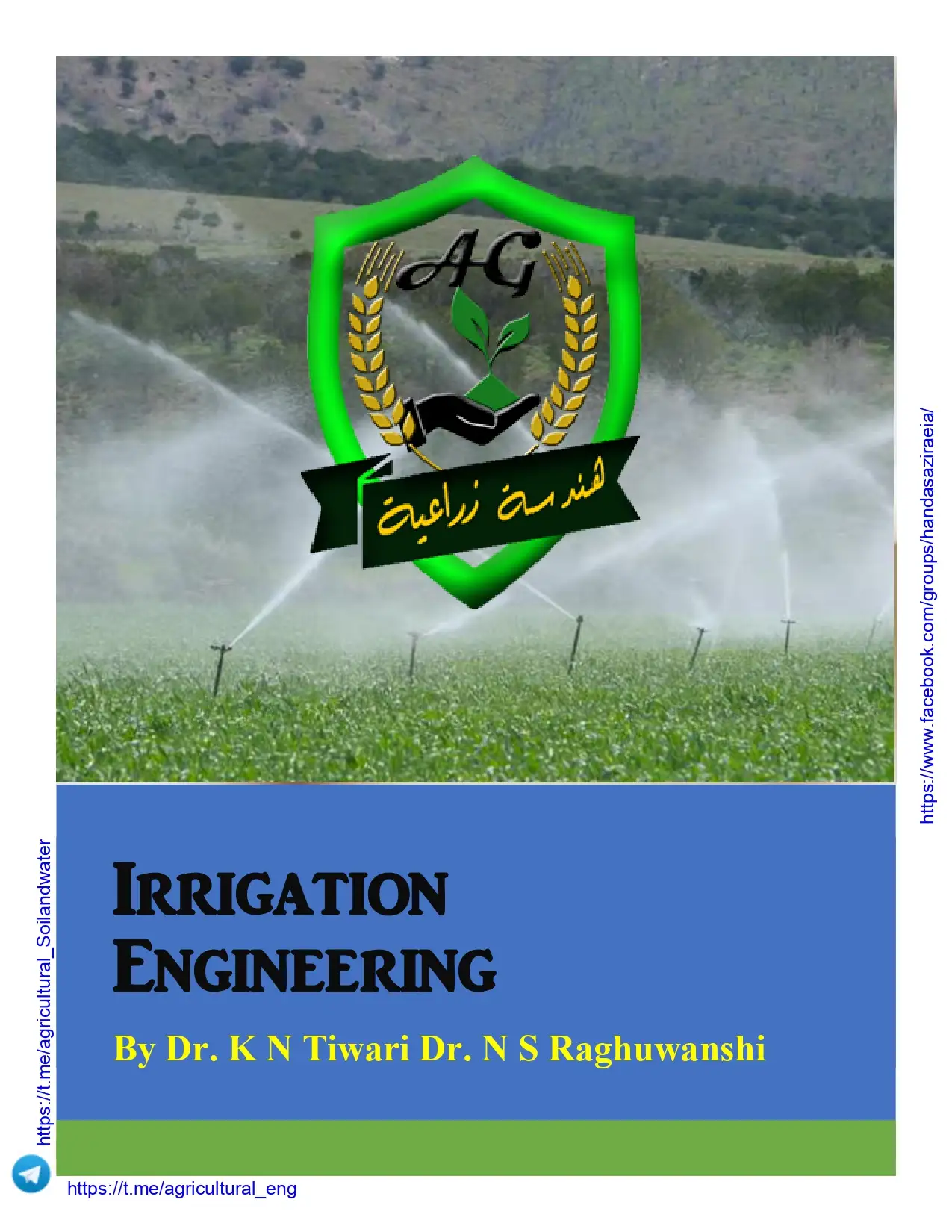Optimal Extraction Of Groundwater For Irrigation Synergies From Surface Water Bodies In Tropical India
Source: https://www.researchgate.net/
Usually dispatched in 2 to 3 days
Usually dispatched in 2 to 3 days
Category:
Irrigation & Agriculture
Only logged in customers who have purchased this product may leave a review.
Related products
Water Productivity of Irrigated Agriculture in India Potential areas for improvement
Abstract
The objective of this paper is to estimate water productivity in irrigated agriculture in selected basins in India; and to identify the drivers of change in water productivity in these regions.
Water Productivity of Irrigated Agriculture in India Potential areas for improvement
Abstract
The objective of this paper is to estimate water productivity in irrigated agriculture in selected basins in India; and to identify the drivers of change in water productivity in these regions.
Watering Floodplain Wetlands in the Murray–Darling Basin to Benefit Native Fish A Discussion with Managers
This report describes the content and outcomes of a workshop entitled ‘Watering Floodplain Wetlands of the Murray–Darling Basin for Fish: A Discussion with Managers’ held on 5 March 2008 at Wonga Wetlands in Albury (NSW). The workshop was part of a four-year, National Water Commission funded project aimed at optimizing wetland environmental watering protocols to maximize benefits to native fish populations.
Watering Floodplain Wetlands in the Murray–Darling Basin to Benefit Native Fish A Discussion with Managers
This report describes the content and outcomes of a workshop entitled ‘Watering Floodplain Wetlands of the Murray–Darling Basin for Fish: A Discussion with Managers’ held on 5 March 2008 at Wonga Wetlands in Albury (NSW). The workshop was part of a four-year, National Water Commission funded project aimed at optimizing wetland environmental watering protocols to maximize benefits to native fish populations.
The Green Side of the Water Cycle: New Advances in the Study of Plant Water Dynamics
Precision irrigation is becoming a crucial management approach for environmentally and
economically sustainable fruit tree production. The vast majority of fruit crops need irrigation
supply as rainfall does not match crop water requirements (Stöckle et al., 2011; Snyder, 2017).
In most cases of fruit crops cultivated in dry areas, rainfed agriculture is not sustainable and
deficit irrigation (DI) is a reasonable strategy to improve water use efficiency. Fereres and
Soriano (2007) highlighted the benefits of regulated DI as a strategy to reduce agricultural
water use. The main purpose of regulated DI is to reduce irrigation at specific developmental
stages of the crop with no or limited effects on yield. The use of DI in different phenological
stages of fruit crops started in the 1980s by Chalmers et al. (1981, 1986).
The Green Side of the Water Cycle: New Advances in the Study of Plant Water Dynamics
Precision irrigation is becoming a crucial management approach for environmentally and
economically sustainable fruit tree production. The vast majority of fruit crops need irrigation
supply as rainfall does not match crop water requirements (Stöckle et al., 2011; Snyder, 2017).
In most cases of fruit crops cultivated in dry areas, rainfed agriculture is not sustainable and
deficit irrigation (DI) is a reasonable strategy to improve water use efficiency. Fereres and
Soriano (2007) highlighted the benefits of regulated DI as a strategy to reduce agricultural
water use. The main purpose of regulated DI is to reduce irrigation at specific developmental
stages of the crop with no or limited effects on yield. The use of DI in different phenological
stages of fruit crops started in the 1980s by Chalmers et al. (1981, 1986).
Irrigation Engineering
Purpose of Irrigation
Some of the main purposes of irrigation are enlisted below:
1. To supply essential moisture for plant growth
2. Transportation of fertilizers (Fertigation)
3. To leach or dilute salts in the soil
4. To help in field preparation, dust control, etc.
5. Other benefits of irrigation include cooling the soil and atmosphere to create a more favorable environment for crop growth and frost control.
Irrigation Engineering
Purpose of Irrigation
Some of the main purposes of irrigation are enlisted below:
1. To supply essential moisture for plant growth
2. Transportation of fertilizers (Fertigation)
3. To leach or dilute salts in the soil
4. To help in field preparation, dust control, etc.
5. Other benefits of irrigation include cooling the soil and atmosphere to create a more favorable environment for crop growth and frost control.
Optimizing Plant Water Use Efficiency for a Sustainable Environment
The rising shortage of water resources in crop-producing regions worldwide and the need for irrigation optimisation call for sustainable water savings. The allocation of irrigation water will be an ever-increasing source of pressure because of vast agricultural demands under changing climatic conditions. Consequently, irrigation has to be closely linked with water-use efficiency with the aim of boosting productivity and improving food quality, singularly in those regions where problems of water shortages or collection and delivery are widespread. The present Special Issue (SI) showcases 19 original contributions, addressing water-use efficiency in the context of sustainable irrigation management to meet water scarcity conditions. These papers cover a wide range of subjects including (i) interaction mineral nutrition and irrigation in horticultural crops, (ii) sustainable irrigation in woody fruit crops, (iii) medicinal plants, (iv) industrial crops, and (v) other topics devoted to remote sensing techniques and crop water requirements, genotypes for drought tolerance, and agricultural management.
Optimizing Plant Water Use Efficiency for a Sustainable Environment
The rising shortage of water resources in crop-producing regions worldwide and the need for irrigation optimisation call for sustainable water savings. The allocation of irrigation water will be an ever-increasing source of pressure because of vast agricultural demands under changing climatic conditions. Consequently, irrigation has to be closely linked with water-use efficiency with the aim of boosting productivity and improving food quality, singularly in those regions where problems of water shortages or collection and delivery are widespread. The present Special Issue (SI) showcases 19 original contributions, addressing water-use efficiency in the context of sustainable irrigation management to meet water scarcity conditions. These papers cover a wide range of subjects including (i) interaction mineral nutrition and irrigation in horticultural crops, (ii) sustainable irrigation in woody fruit crops, (iii) medicinal plants, (iv) industrial crops, and (v) other topics devoted to remote sensing techniques and crop water requirements, genotypes for drought tolerance, and agricultural management.















Reviews
There are no reviews yet.